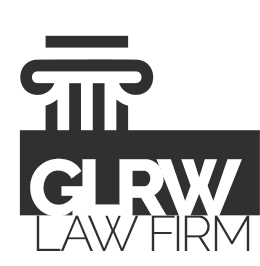
12 Aug Understanding Legal Grounds and Notice Requirements for Eviction in New Jersey: A Guide for Tenants and Landlords
If you’re navigating the complexities of eviction law in New Jersey, it’s crucial to understand the specific legal grounds that can justify an eviction. Under New Jersey’s eviction statutes (N.J.S.A. 2A:18-61.1), landlords must adhere to strict procedures and valid reasons for evicting tenants. Here’s a comprehensive guide to the grounds for eviction in New Jersey, outlining the notice requirements necessary for a landlord to evict a tenant.
1. Non-Payment of Rent
Notice Required: None, except for federally subsidized housing, which requires a 14-day notice.
Key Points:
- Tenants in public housing may be eligible for assistance through the Homelessness Prevention Program for back rent.
- Extra charges beyond “rent” cannot be included unless explicitly stated in a lease. Consult an attorney if your landlord wrongly claims extra fees as part of the rent.
2. Disorderly Conduct
Notice Required:
- Notice to cease detailing the disorderly conduct.
- Notice to quit must be served at least three days before filing for eviction.
Key Points:
- Disorderly conduct must continue after receiving a notice to cease to proceed with eviction.
3. Damage to Property
Notice Required:
- Notice to quit served at least three days before filing for eviction.
Key Points:
- Eviction is justified only if the damage is intentional or grossly negligent. Simple accidents do not qualify.
4. Violation of Landlord’s Rules
Notice Required:
- Notice to cease detailing the violation.
- Notice to quit served at least one calendar month before filing for eviction.
Key Points:
- Rules must be reasonable and clearly communicated. The violation must be substantial.
5. Violation of Lease Agreement
Notice Required:
- Notice to cease and notice to quit served at least one calendar month before filing.
Key Points:
- The lease must include a “right of reentry” clause, and violations must be substantial.
6. Violation of Public Housing Lease (Drug Use or Illegal Activities)
Notice Required:
- Notice to quit served in a reasonable amount of time before filing.
Key Points:
- Lease provisions prohibiting illegal activities must be in effect from the beginning of the lease term. Consult an attorney if you face eviction under these circumstances.
7. Failure to Accept Rent Increase
Notice Required:
- One-month notice of the rent increase and end of tenancy.
Key Points:
- Rent increases must be reasonable and comply with local rent control laws.
8. Health or Housing Code Violations
Notice Required:
- Notice to quit served at least three months before filing for eviction.
Key Points:
- Violations must be substantial, and tenants may be entitled to relocation assistance.
9. Retirement of Building from Residential Use
Notice Required:
- Notice to quit served at least 18 months before filing.
Key Points:
- The notice must detail the future use of the property. Ensure that all approvals are in place before proceeding with eviction.
10. Refusal to Accept Lease Changes
Notice Required:
- Notice of lease change followed by a notice to quit served at least one month before filing.
Key Points:
- Changes must not be “unconscionable” and must be communicated clearly. Some judges will allow tenants to avoid eviction by accepting new terms at the date of trial.
11. Habitual Late Rent Payments
Notice Required:
- Notice to cease and notice to quit served at least one month before filing.
Key Points:
- Extremely tough to establish. Habitual lateness must continue after receiving notice to cease. The landlord must serve multiple notices to cease and a notice to quit within a short time frame.
12. Conversion to Condominium or Cooperative
Notice Required:
- Notice to quit served at least three years before filing.
Key Points:
- Tenants must receive detailed notices about the conversion plan and their rights to comparable housing.
13. Owner or Buyer Wants to Move In
Notice Required:
- Notice to quit served at least two months before filing.
Key Points:
- This applies only to duplexes and single-family homes and requires evidence of the owner’s intention to live in the unit.
14. Tenant Loses Job with Rental Unit
Notice Required:
- Notice to quit served at least three days before filing.
Key Points:
- This applies if the tenant’s job with the landlord included housing. Not applicable if the tenant was residing in the unit before employment.
15. Conviction of Drug Offense
Notice Required:
- Notice to quit served at least three days before filing.
Key Points:
- The offense must have occurred on the property. Eviction is possible even if the tenant was unaware of the drug activity.
16. Conviction of Assault or Threats Against the Landlord
Notice Required:
- Notice to quit served at least three days before filing.
Key Points:
- Applies to convictions involving harm or threats against the landlord or their employees.
17. Engagement in Drug Activity, Theft, or Assaults
Notice Required:
- Notice to quit served at least three days before filing.
Key Points:
- The landlord must prove criminal activity. Eviction is possible even if the tenant was unaware of the illegal activity.
18. Conviction of Theft Offense
Notice Required:
- Notice to quit served at least three days before filing.
Key Points:
- Applies to theft from the landlord or other tenants. The tenant must be aware of the theft for eviction to proceed.
19. Human Trafficking
Notice Required:
- Notice to quit served at least three days before filing.
Key Points:
- The landlord must prove human trafficking activity, though a conviction is not necessary.
Need Legal Assistance?
Whether you are a tenant facing eviction or a landlord considering eviction, understanding these grounds is crucial. For personalized legal advice and representation, contact a New Jersey eviction attorney who can guide you through the complexities of eviction law and ensure that your rights are protected.
.




Sorry, the comment form is closed at this time.